Pulpotomy
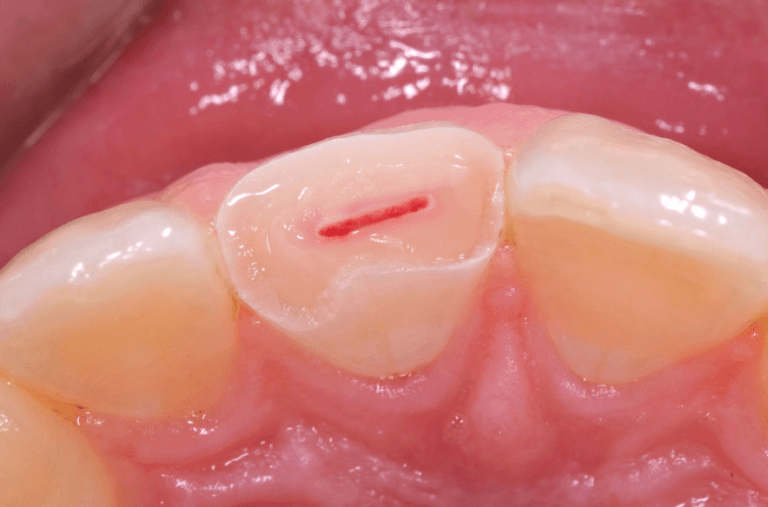
What Is Pulpotomy?
A Pulpotomy is a dental procedure that involves removing the diseased pulp tissue from the crown of a tooth while leaving the healthy pulp in the roots intact. This treatment is typically performed to alleviate pain, stop the spread of infection, and preserve the natural tooth structure.
During the procedure, the infected pulp is replaced with a medicated filling to encourage healing and prevent further infection. A pulpotomy is often performed as an emergency treatment or as the initial step in a root canal therapy.
Before deciding on whether Pulpotomy are right for you, there are some things you should know:
- Who Needs Pulpotomy?
- Benefits Of Pulpotomy
- Alternative Treatments To Pulpotomy
- How Much Does Pulpotomy Cost?
- Steps In The Pulpotomy Procedure
- Frequently Asked Questions About Pulpotomy
If you have any further questions about Pulpotomy or other dental services offered at Atlas Dental, please contact us.

Free phone consultation
Have questions about Pulpotomy? Schedule a free phone consultation with our Toronto dentist.

5 star google reviews
Our patients love us! See for yourself why more and more people are choosing Atlas Dental for Dental Pulpotomy.

Book Emergency Pulpotomy
Do you think you have cavities and need a Pulpotomy? Book an emergency Pulpotomy online.
Who Needs Pulpotomy?
A pulpotomy is recommended in specific situations:
- Extensive Tooth Decay: When a cavity reaches the pulp, causing inflammation or infection.
- Tooth Injury: Trauma that exposes or damages the pulp.
- Infection or Inflammation: Pulpitis caused by untreated cavities or cracks in the tooth.
- Baby Teeth with Deep Cavities: Helps preserve primary teeth until they naturally fall out.
- Severe Tooth Pain or Sensitivity: Persistent discomfort may indicate pulp damage.
A dentist will perform a thorough examination to determine if a pulpotomy is the right treatment for your situation.If you have further questions about Pulpotomy, please contact us.
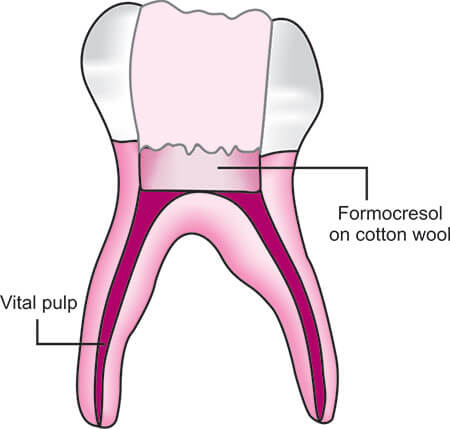
Benefits Of Pulpotomy
A pulpotomy offers several benefits:
- Preserves the Tooth: Maintains natural tooth structure and function.
- Relieves Pain: Eliminates the source of discomfort.
- Stops Infection: Prevents the spread of bacteria to surrounding tissues.
- Ideal for Baby Teeth: Keeps primary teeth in place to support proper spacing for adult teeth.
Dentists carefully assess the extent of pulp involvement, overall tooth condition, and the patient’s medical history before recommending a pulpotomy. If you have further questions about Pulpotomy, please contact us.
Alternative Treatments To A Pulpotomy
If a pulpotomy isn’t suitable, alternative treatments include:
- Root Canal Therapy: For irreversible pulp damage.
- Pulpectomy: Removal of all pulp tissue, typically for permanent teeth.
- Tooth Extraction: For severely damaged teeth, followed by replacement options like implants or bridges.
- Pulp Capping: A conservative option for minimal pulp damage.
Dentists work closely with patients to discuss these options, considering the individual’s unique circumstances and guiding them toward the most suitable treatment plan. If you have further questions about Pulpotomy, please contact us.
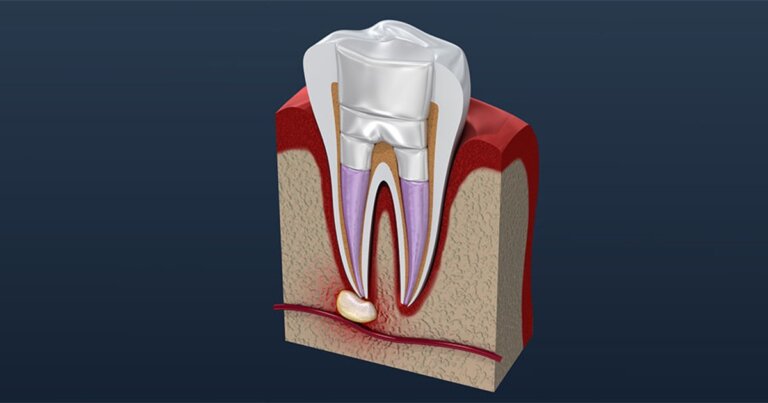
Cost of Pulpotomy
The cost of Pulpotomy treatment can range between $110-265. It will depend on whether the tooth is a baby tooth or an adult tooth, as well as the number of canals inside the tooth. The codes relevant to pulpotomy in the Ontario Dental Association’s Suggested Fee Guide appear as follows:
Pulpotomy, Permanent Teeth (as a separate emergency procedure)
- 32221 – Anterior and Bicuspid Teeth: $173
- 32222 – Molar Teeth: $265
Pulpotomy, Primary Teeth
- 32231 – Primary Dentition, as a Separate Procedure: $173
- 32232 – Primary Dentition, Concurrent with Restorations (but excluding final restoration): $110
Pulpotomy, Permanent Teeth Concurrent with Restorations (but excluding final restoration)
- 32241 – Anterior and Bicuspid Teeth: $110
- 32242 – Molar Teeth: $110
Pulpotomies are considered a basic service under all dental insurance plans and should be covered to your maximum insurable limit, but be sure to find out from your dental insurance plan provider how much you are eligible for before going ahead with dental treatment. Our fees are consistent with the ODA Fee Guide.
For patients without dental insurance, Atlas Dental is pleased to offer dental financing through iFinance Dentalcard. Affordable payment plans start at 7.95% for terms of 6 months to 6 years. To learn more about Dentalcard dental treatment financing, follow this link.
Steps In The Pulpotomy Procedure
Here’s what to expect during a pulpotomy:
- Anesthesia: Local anesthesia numbs the tooth to ensure comfort.
- Tooth Isolation: A rubber dam keeps the tooth dry and free from contamination.
- Access Opening: The dentist creates an opening in the crown to access the pulp chamber.
- Pulp Removal: Infected pulp is carefully removed from the crown.
- Medication Application: A medicated filling is applied to protect and heal the remaining pulp.
- Filling or Restoration: The tooth is sealed with a filling or crown to restore function and prevent future damage.
It’s important to note that the specific steps of a pulpotomy can vary based on factors such as the tooth involved, the extent of pulp involvement, and the dentist’s preferred techniques. If you have further questions about Pulpotomy, please contact us.
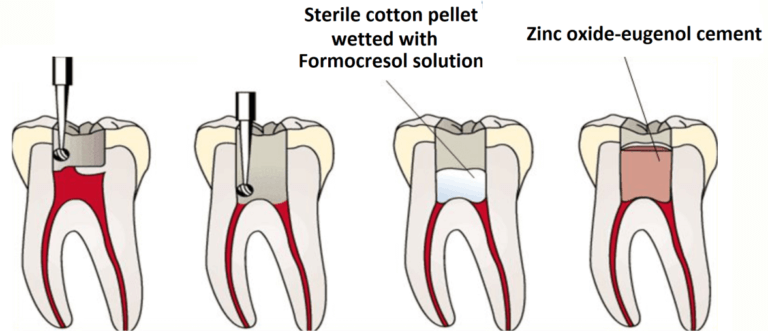
Frequently Asked Questions About Pulpotomy
- Is a pulpotomy painful?
No, local anesthesia ensures the procedure is painless. Mild discomfort after the procedure can be managed with over-the-counter pain relievers.
- How long does a pulpotomy take?
The procedure usually takes 30–60 minutes, depending on the complexity.
- Can a pulpotomy be done during pregnancy?
Yes, with proper precautions. Inform your dentist about your pregnancy to ensure safe treatment.
- What happens if I don’t treat an infected tooth?
Untreated pulp infections can lead to abscesses, severe pain, and tooth loss.
It’s important to note that the need for a pulpotomy varies from person to person, and the decision to undergo the procedure is typically based on a thorough examination by a dentist. If you have further questions about Pulpotomy, please contact us.
We also think you’ll like…
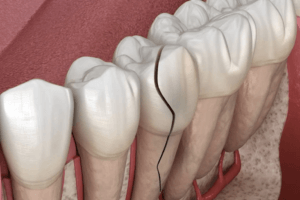
Crack Tooth Syndrome
Crack Tooth Syndrome What Is Crack Tooth Syndrome? Do you have unexplained dental pain but no obvious signs of decay or trauma? You could be

Dental Abscess
Dental Abscess What Is A Dental Abscess? A Dental Abscess is a painful infection that forms a collection of pus around a tooth or within
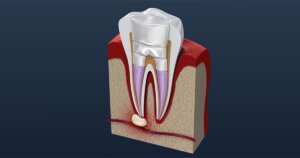
Bioceramic Root Canal Sealers
Bioceramic Root Canal Sealers What Are Bioceramic Root Canal Sealers? Bioceramic root canal sealers are bioactive, non-toxic materials used to seal the root canal system
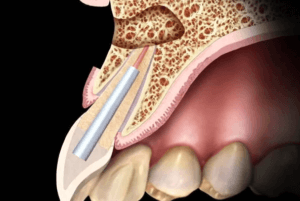
Apicoectomy
Apicoectomy What Is Apicoectomy? Apicoectomy, also known as root-end resection, is a surgical dental procedure aimed at treating infections or inflammation in the roots of
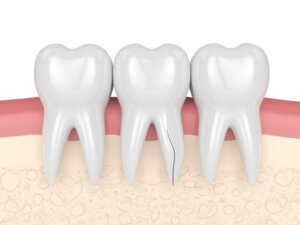
Vertical Root Fracture
Vertical Root Fracture What Is A Vertical Root Fracture? A Vertical Root Fracture is a crack that develops along the length of a tooth’s root.

Dental Infection
Dental Infection What Is Dental Infection? Are you dealing with a Dental Infection? This painful condition occurs when harmful bacteria infiltrate the tissues in your

